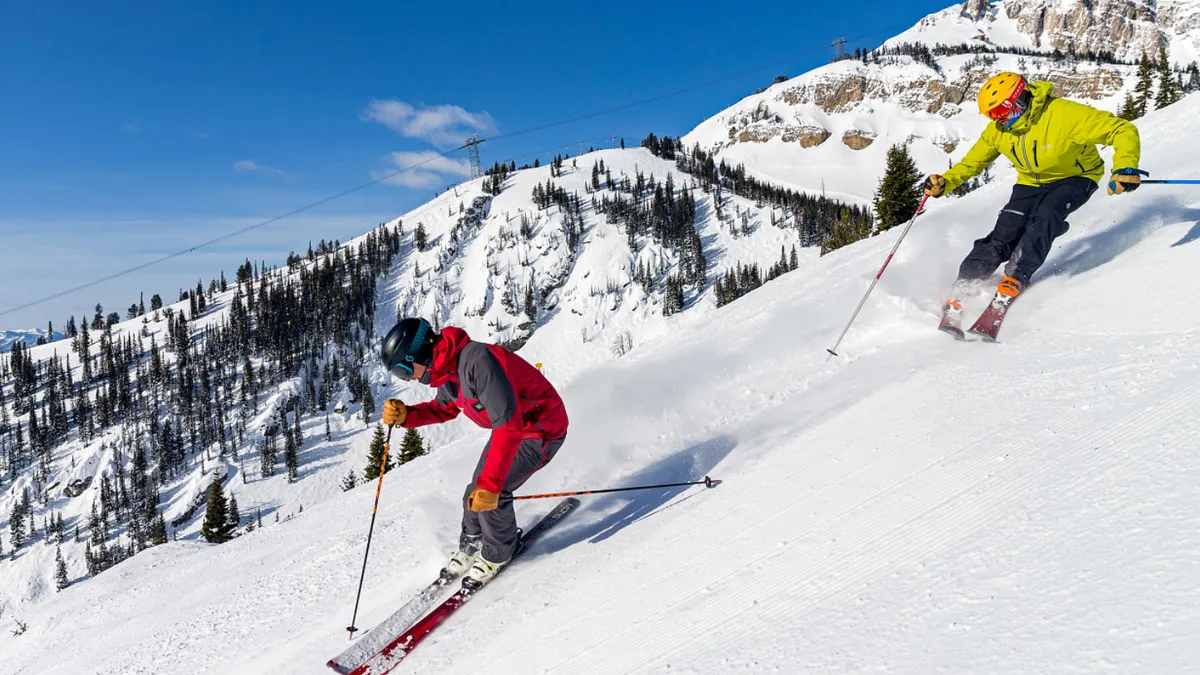Dive Brief:
- Vail Resorts alum Angela Korch will be returning to the company to serve as both its new executive vice president and CFO, effective Dec. 22, the company announced Monday.
- Korch is succeeding long-time CFO Michael Barkin who announced his resignation in July to pursue personal opportunities after being at the financial helm for nearly a decade.
- Korch originally joined the Broomfield, Colo.-based company back in 2010 and held various leadership positions, including roles where she worked under Barkin, before she left to become CFO at CorePower Yoga in May 2020.
Dive Insight:
Before leaving the ski resort operator, Korch served as vice president of corporate and mountain finance where she was responsible for supporting the company’s resort expansions and managing financial and capital allocation strategies as she helped with the integration of 32 mountain resorts, the release said.
“Angela is a strong leader with deep experience in our industry, a passion for our sport, and a long history with our company,” said CEO Kirsten Lynch in the release.
Barkin will remain in the CFO role until Jan. 1, his official last day. His departure is coming several months after Lynch announced in March via a letter to employees a new $20 per hour minimum wage at its 37 North American resorts and a doubling of merit increases for salaried employees to an average of 6% from 3%.
In the letter, Lynch detailed a “pivotal shift” to focus on employees in the wake of worker shortages.
Besides labor troubles, the ski industry has been facing headwinds over recent months related to climate change. The Colorado River drought, for example, has changed the quality, quantity, and longevity of snow in the area, the Denver Gazette reported.
While resorts usually supplement the natural snow with machine-blown powder, those resources, too, are limited by the drought.
Vail Resorts operates top ski areas at Vail in Colorado, Whistler Blackcomb in Canada and Stowe in Vermont.
The lasting effects of COVID-19 have also caused economic troubles within the travel industry, Vail Resorts included. Despite the company’s resorts being open last ski season, the Omicron variant caused staffing challenges, increased labor costs and less visitors during the holiday season.
These challenges were reflected in the company’s recent lukewarm earnings report for the fiscal year ending July 31.
“While our North American Resorts were operational throughout the 2021/2022 ski season, the impacts of COVID-19, and specifically the Omicron variant, resulted in negative impacts to our operational results,” the company said according to a SEC filing.
The company is set to release earnings for the first quarter of its fiscal year on Dec. 8.













